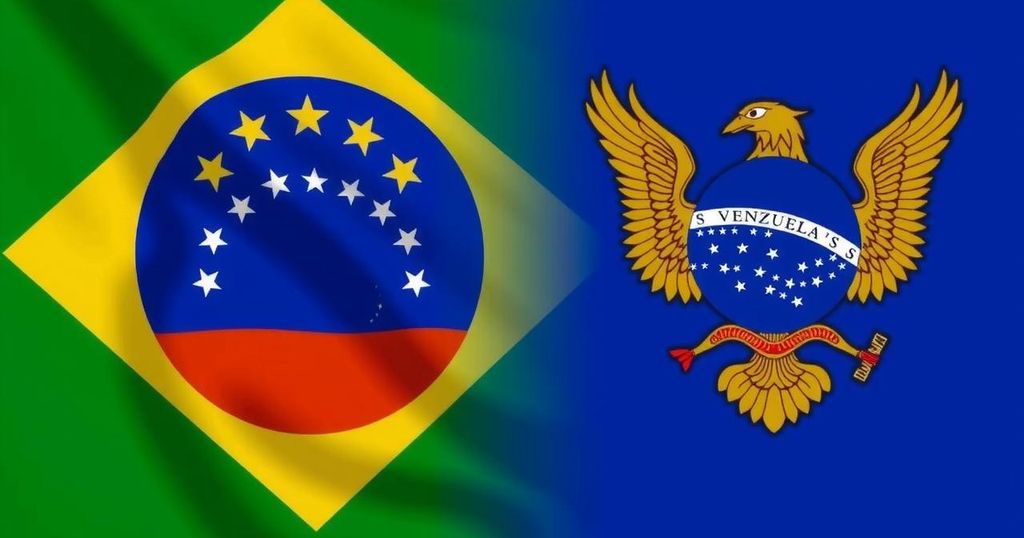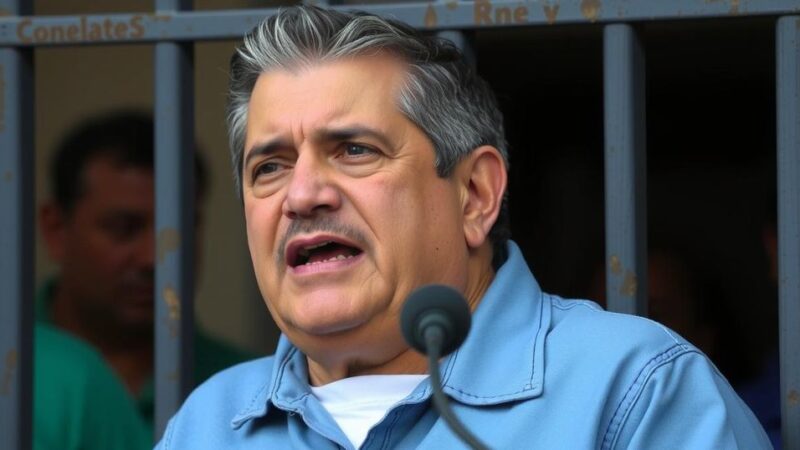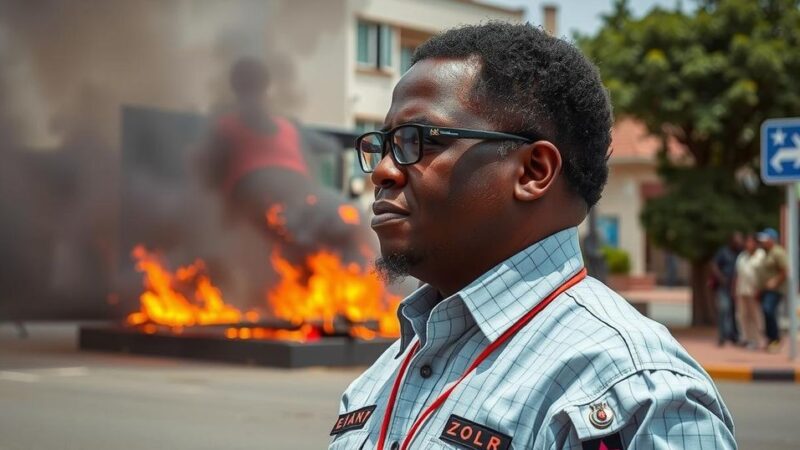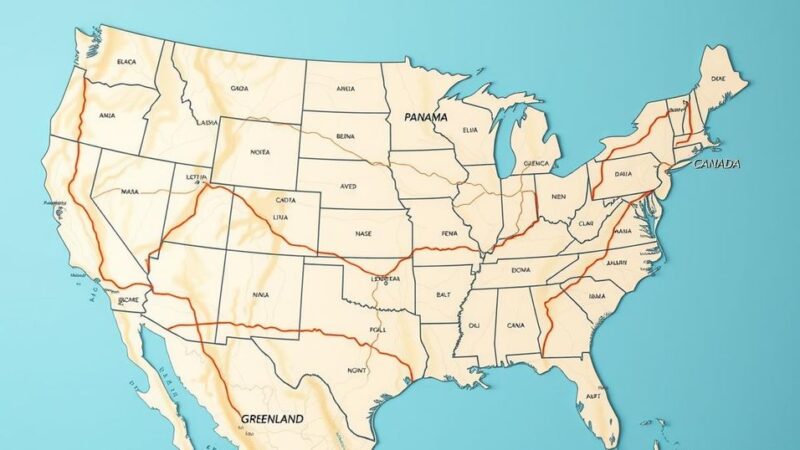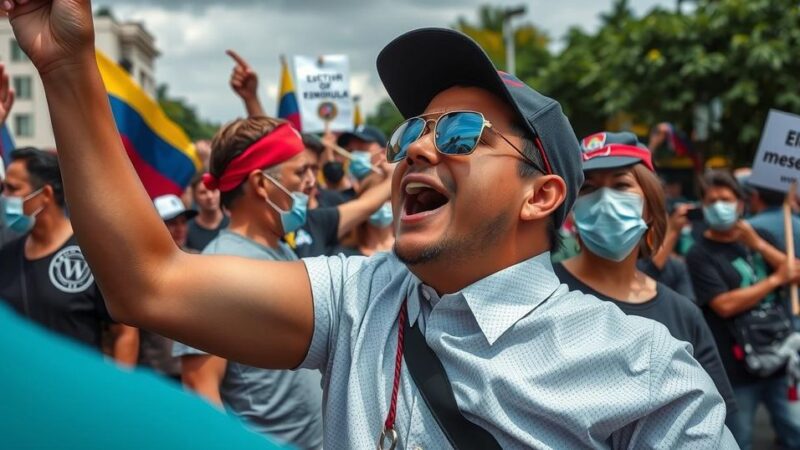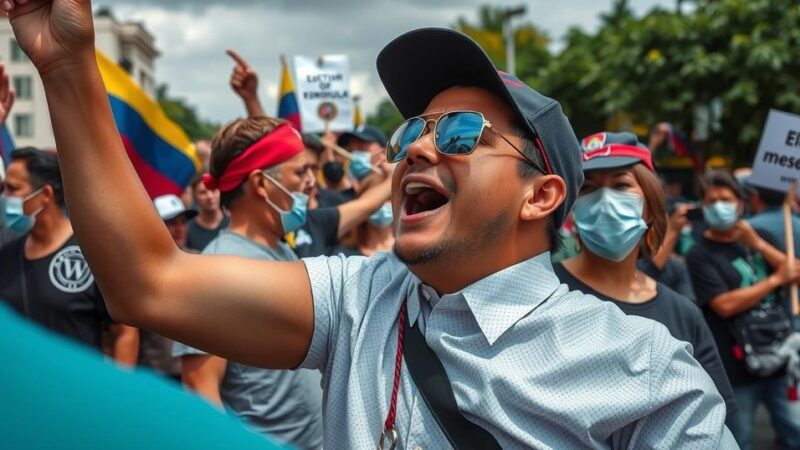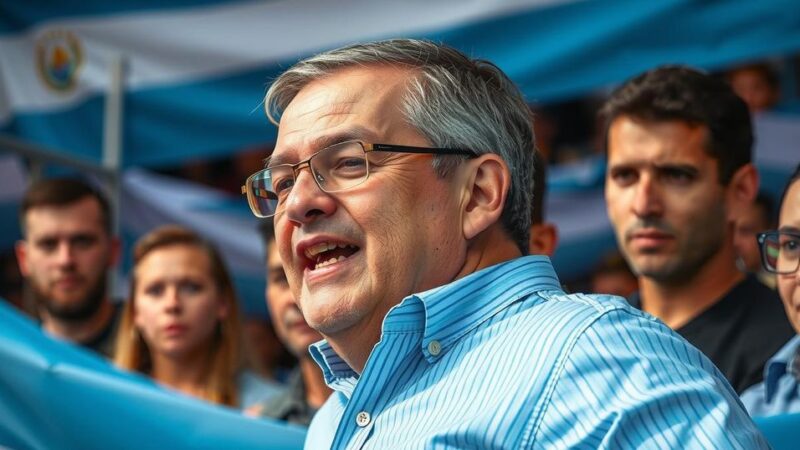Venezuela recalled its ambassador from Brazil due to Brazil’s veto of its application to join the BRICS group. The Venezuelan Foreign Ministry criticized Brazil for making rude statements and blocking its membership. President Maduro’s recent controversial reelection and Brazil’s refusal to recognize him has exacerbated tensions between the two nations.
In a dramatic escalation of diplomatic tensions, Venezuela has officially recalled its ambassador from Brazil following the recent veto concerning its application for membership in the BRICS alliance. This decision, announced by the Venezuelan Foreign Ministry on Wednesday, is a direct response to what it described as Brazil’s disruptive actions that have hindered Venezuela’s aspirations to join the coalition of major developing nations. Venezuela condemned Brazilian officials for their ‘interventionist’ and ‘rude statements’ regarding Caracas’s membership bid, signaling deepening discord between the neighboring South American nations. The Venezuelan Foreign Ministry reportedly summoned Brazil’s business envoy for discussions to address the burgeoning crisis. This latest diplomatic row further complicates relations between the two countries, which have deteriorated significantly since President Nicolas Maduro claimed re-election under contentious circumstances in late July. Brazilian President Luiz Inacio Lula da Silva, a one-time ally to Maduro’s predecessor Hugo Chavez, has declined to recognize Maduro’s presidency, instead calling for transparency from Venezuelan electoral authorities. The culmination of tensions arose during a recent BRICS summit in Kazan, Russia, at which Venezuela’s longstanding ambition to join the global bloc was obstructed. The Foreign Ministry lamented, “The Venezuelan people feel indignation and shame at this inexplicable and immoral aggression.” The current BRICS membership includes Brazil, Russia, India, China, and South Africa, along with also-added members like Iran and the United Arab Emirates, enhancing the group’s geopolitical weight amid global economic shifts. Further inflaming the situation, Celso Amorim, Brazil’s primary foreign policy adviser, stated that Venezuela’s application had been vetoed due to a breach of trust with partnering nations. The Venezuelan government retaliated by accusing Amorim of acting as “a messenger for North American imperialism,” denouncing his unwarranted commentary on Venezuelan electoral processes as disrespectful. Amid these political upheavals, Venezuela’s electoral authorities have proclaimed Maduro as the election winner, yet they failed to provide comprehensive results which have led to skepticism amongst opposition supporters. The opposition maintains that their candidate, Edmundo Gonzalez, secured a decisive victory, a claim backed by detailed polling station outcomes, further fueled by Gonzalez’s claims of fleeing to Spain to seek political asylum after he was charged with incitement to sedition. Venezuela’s ongoing social unrest has tragically culminated in numerous fatalities during government crackdowns against demonstrators, raising significant humanitarian concerns.
The current tensions between Venezuela and Brazil reflect broader geopolitical dynamics involving democratic legitimacy and international alignments. Venezuela’s bid for BRICS membership signifies its desire for enhanced global influence among emerging economies, yet Brazil’s rejection underscores rifts among traditional allies. President Maduro’s controversial reelection has drawn criticism both domestically and abroad, further straining relationships within a politically volatile region. This backdrop of contested electoral processes, human rights issues, and foreign diplomatic maneuvers highlights the complexities surrounding Venezuela’s international aspirations and its domestic political landscape.
In conclusion, the diplomatic fallout between Venezuela and Brazil following the veto of Venezuela’s BRICS membership application emphasizes the fragility of alliances within Latin America, particularly amidst allegations of electoral misconduct. Venezuela’s move to recall its ambassador illustrates heightened tensions and a departure from diplomatic norms while signaling the potential for further regional instability rooted in conflicting political narratives. Both nations may need to engage in dialogue to prevent continued deterioration of relations and to address the underlying issues that have fueled this confrontation.
Original Source: www.aljazeera.com

